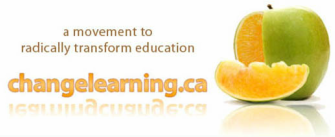Read more
|
With the tools of technology, the support of the Galileo Educational Network, and an inquiry-based model of learning, grade 10 classes took on the question: “What are the implications of living in a democratic society within a larger global context?” Working closely with a specialist in middle east politics from the University of Calgary, students examined democracy in light of the invasion of Iraq.
Read more
0 Comments
Primary school children are learning six different languages from the age of nine under a pioneering new plan.
The idea is to give them a taste of all six so they can then decide for themselves which language to opt for when they transfer to secondary school. Read more Human beings are communal by nature and living together – in communities – is our most common and most natural state of life. John Abbott discusses the fact that communities must be created and sustained by the conscious intentions and actions of their members, and that we must attend to health and vitality of our communities in order to thrive – and to learn! – as a species.
About this paper This paper was written for the first International Baccalaureate Organization Worldwide Electronic Conference in 2004, which had the theme of “Enriching Communities”. John Abbott, as a contributor/leader, noted that the theme suggested that “right now, many people fear that communities are not what they once were, or indeed might be in the future, and that somehow they have to be enriched.” He contributed four papers to the conference; with We Are a Small Group Species being the first in the series. “I believe that current formal education still prepares students primarily for the world of the past, rather than for possible worlds of the future….[we have] not yet figured out how to prepare youngsters so that they can survive and thrive in a world different from one ever known or even imagined before.” Howard Gardner
“Our ever-increasing global interconnection has changed the context of our existence, while globalization continues to change the face of our planet and the challenges that we, as a species, must face. Education must now respond to the need for new types of knowledge and very different skill sets. It must also provide learning experiences that foster the development of engaged and active global citizens if we ever hope to address the issues that threaten our future—global warming, international conflict and inequities in resource distribution around the world. Read more There’s no question that the world is a very different place than it was when public schooling became a common practice in North America. In fact, the rate of change itself has accelerated dramatically during this time frame.
Read more Despite all of society’s advances, our problems proliferate. Wars abound, environmental degradation accelerates, economies topple overnight, and pandemics such as AIDS and tuberculosis continue to spread. The Internet and other media help to disseminate knowledge, but they’ve also created an “info-glut” and left us too little time to process it. What’s more, advances in technology have made the world so bewilderingly fast-paced and complex that fewer people are able even to grasp the problems, let alone generate solutions. That space between the problems that arise and our ability to solve them is “the ingenuity gap,” and as we careen towards an increasingly harried and hectic future, the gap seems only to widen.
Read more In the interconnected world in which the vast majority of human beings now live ... it is not possible for parts of the world to thrive while others remain desperately poor and deeply frustrated. Recalling the words of Benjamin Franklin, “We must indeed all hang together, or, most assuredly, we shall all hang separately”. Howard Gardner
Think about what kind of world you want to live and work in. What do you need to know to build that world? Demand that your teachers teach you that. Peter Kropotkin 1842-1921
|
Categories
All
Archives
August 2015
|

 RSS Feed
RSS Feed
